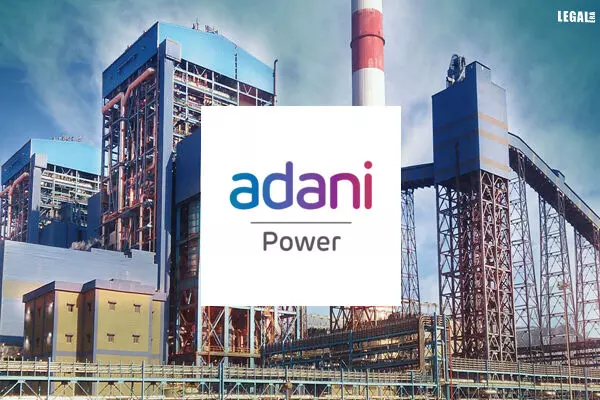- Home
- News
- Articles+
- Aerospace
- Artificial Intelligence
- Agriculture
- Alternate Dispute Resolution
- Arbitration & Mediation
- Banking and Finance
- Bankruptcy
- Book Review
- Bribery & Corruption
- Commercial Litigation
- Competition Law
- Conference Reports
- Consumer Products
- Contract
- Corporate Governance
- Corporate Law
- Covid-19
- Cryptocurrency
- Cybersecurity
- Data Protection
- Defence
- Digital Economy
- E-commerce
- Employment Law
- Energy and Natural Resources
- Entertainment and Sports Law
- Environmental Law
- Environmental, Social, and Governance
- Foreign Direct Investment
- Food and Beverage
- Gaming
- Health Care
- IBC Diaries
- In Focus
- Inclusion & Diversity
- Insurance Law
- Intellectual Property
- International Law
- IP & Tech Era
- Know the Law
- Labour Laws
- Law & Policy and Regulation
- Litigation
- Litigation Funding
- Manufacturing
- Mergers & Acquisitions
- NFTs
- Privacy
- Private Equity
- Project Finance
- Real Estate
- Risk and Compliance
- Student Corner
- Take On Board
- Tax
- Technology Media and Telecom
- Tributes
- Viewpoint
- Zoom In
- Law Firms
- In-House
- Rankings
- E-Magazine
- Legal Era TV
- Events
- Middle East
- Africa
- News
- Articles
- Aerospace
- Artificial Intelligence
- Agriculture
- Alternate Dispute Resolution
- Arbitration & Mediation
- Banking and Finance
- Bankruptcy
- Book Review
- Bribery & Corruption
- Commercial Litigation
- Competition Law
- Conference Reports
- Consumer Products
- Contract
- Corporate Governance
- Corporate Law
- Covid-19
- Cryptocurrency
- Cybersecurity
- Data Protection
- Defence
- Digital Economy
- E-commerce
- Employment Law
- Energy and Natural Resources
- Entertainment and Sports Law
- Environmental Law
- Environmental, Social, and Governance
- Foreign Direct Investment
- Food and Beverage
- Gaming
- Health Care
- IBC Diaries
- In Focus
- Inclusion & Diversity
- Insurance Law
- Intellectual Property
- International Law
- IP & Tech Era
- Know the Law
- Labour Laws
- Law & Policy and Regulation
- Litigation
- Litigation Funding
- Manufacturing
- Mergers & Acquisitions
- NFTs
- Privacy
- Private Equity
- Project Finance
- Real Estate
- Risk and Compliance
- Student Corner
- Take On Board
- Tax
- Technology Media and Telecom
- Tributes
- Viewpoint
- Zoom In
- Law Firms
- In-House
- Rankings
- E-Magazine
- Legal Era TV
- Events
- Middle East
- Africa
Supreme Court accepts Adani-Gujarat Urja settlement

Supreme Court accepts Adani-Gujarat Urja settlement
The two warring factions presented a compromise deed
The Supreme Court has accepted the settlement reached between Adani Power (Mundra) Limited (APML) and the Gujarat Urja Vikas Nigam Limited (GUVNL). The agreement was regarding the claim arising from the termination of a Power Purchase Agreement (PPA) between the two parties.
When the curative petition was taken up for hearing, Attorney General KK Venugopal informed the court that the parties had amicably settled the dispute. "There was a claim of Rs.10,000 crores compensation and it now stands withdrawn. Therefore, we request for the settlement to be recorded," he said.
Thus, the five-judge bench of Chief Justice of India NV Ramana, Justice UU Lalit, Justice DY Chandrachud Justice BR Gavai and Justice Surya Kant disposed of the petition filed by Gujarat Urja against the court's 2019 verdict that upheld the termination of PPA.
"In view of the settlement between the parties, we dispose of the curative plea saying that both parties are governed by the settlement entered into by parties," the bench dictated.
In 2007, Adani Power had signed a PPA with Gujarat Urja for the supply of 1,000 MW power at a certain rate from its power project situated in Korba in Chhattisgarh. However, it later informed Gujarat Urja that the power supply would be from its plant located in Mundra instead of Korba.
Therefore, another PPA was signed between the two entities and there was an assurance given to Adani Power by the Gujarat Mineral Development Corporation (GMDC) that it would supply the coal to Adani Power.
However, it did not supply the coal to Adani Power despite several reminders. The Government of Gujarat and GMDC were also apprised of the situation.
Subsequently, Adani Power terminated the PPA and fulfilled the condition of the payment of liquidated damages as was stipulated in the PPA.
But, the termination notice was challenged before the GERC, which held that Adani Power had illegally terminated the PPA. However, the Appellate Tribunal for Electricity upheld the decision.
This led to the appeal before the Supreme Court.
In 2019, a three-judge bench headed by now-retired Justice Arun Mishra had held that the notice of termination of PPA by Adani Power to Gujarat Urja in 2009 was legal and valid.
The court had, therefore, allowed Adani Power to approach the Central Electricity Regulatory Commission (CERC) for the determination of compensatory tariff for the power the company supplied to the Gujarat Urja. The CERC was directed to decide on the issue within three months.
Meanwhile, senior advocate Dushyant Dave, then President of the Supreme Court Bar Association wrote a letter to then Chief Justice Ranjan Gogoi. He alleged that the Supreme Court had listed the cases involving the Adani Group out of turn during the summer vacation. And that in contravention to the settled practice and procedure, the apex court had disposed of the cases.
In September 2021, the apex court issued a notice in a curative petition filed by Gujarat Urja. But the two parties have now settled the matter amicably.
- #Supreme Court
- #Chief Justice NV Ramana
- #Justice UU Lalit
- #Justice DY Chandrachud
- #Justice BR Gavai
- #Justice Surya Kant
- #Attorney General KK Venugopal
- #Justice Arun Mishra
- #Chief Justice Ranjan Gogoi
- #Dushyant Dave
- #Supreme Court Bar Association
- #Central Electricity Regulatory Commission
- #Adani Power (Mundra) Limited
- #Gujarat Urja Vikas Nigam Limited



